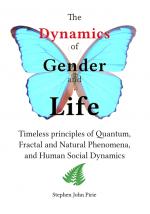Recently while at music festival I started chatting to someon who believes in the "100th Monkey Principle" — for those unfamiliar with the idea, here's an excerpt from Wikipedia
In 1985, Elaine Myers re-examined the original published research in "The Hundredth Monkey Revisited" in the journal In Context. In her review she found that the original research reports by the Japan Monkey Center in Vol. 2, 5, and 6 of the journal Primates are insufficient to support Watson's story. In short, she is suspicious of the existence of a hundredth monkey phenomenon; the published articles describe how the sweet potato washing behavior gradually spread through the monkey troupe and became part of the set of learned behaviors of young monkeys, but she doesn't agree that it can serve as an evidence for the existence of a critical number at which the idea suddenly spread to other islands.
Now, irrespective of the facts — whether the 'washing the potatoes' ideas spread spontaneously or not — when one subscribes to (for want of a better term) the "100th Monkey Principle" there are some basic principles that will be abused.
We now know via quantum mechanics that all is interconnected, instantly (nonlocally). So far so good — such spontaneous learning could, in principle, occur. The trouble is that "The 100th monkey principle" would disallow ornery individual monkeys saying "nah, I don't want to play with you lot, I like my gritty potatoes." Any cogent, detailed analysis of the 100th monkey principle reveals that it disallows individuality, and ... yes, you guessed it ... free will.
Free will is a sacrosanct given — so the idea of spontaneous group learning would require each individual to actively feel the intuitive information (which is already ubiquitously available anyway1) and then choose, to play along and to learn. But we're choosing to NOT involve 'group mind' right now, even with those intuitive signals being available right now. Whoops.
I suppose another term for the 100th monkey principle would the Borg Principle (a la Star Trek).
All of which leads one to realise that the idea of the 100th monkey must ultimately be hugely dis-empowering. Basically, "when the crowd says it's okay, then it'll be okay for me too". But that is a huge denial of individual responsibility for shifting and changing ourselves, and our world.
I guess the 100th monkey principle would be more descriptive if it was simply called the "me too principle".
But you know others have said much of this with much more eloquence:
Excerpts from "Joseph Campbell - The Power of Myth, with Bill Moyers"
MOYERS: But aren't many visionaries and even leaders and heroes close to the edge of neuroticism?
CAMPBELL: Yes, they are.
Tête à Tête
MOYERS: How do you explain that?
CAMPBELL: They've moved out of the society that would have protected them, and into the dark forest, into the world of fire, of original experience. Original experience has not been interpreted for you, and so you've got to work out your life for yourself. Either you can take it or you can't. You don't have to go far off the interpreted path to find yourself in very difficult situations. The courage to face the trials and to bring a whole new body of possibilities into the field of interpreted experience for other people to experience - that is the hero's deed.
